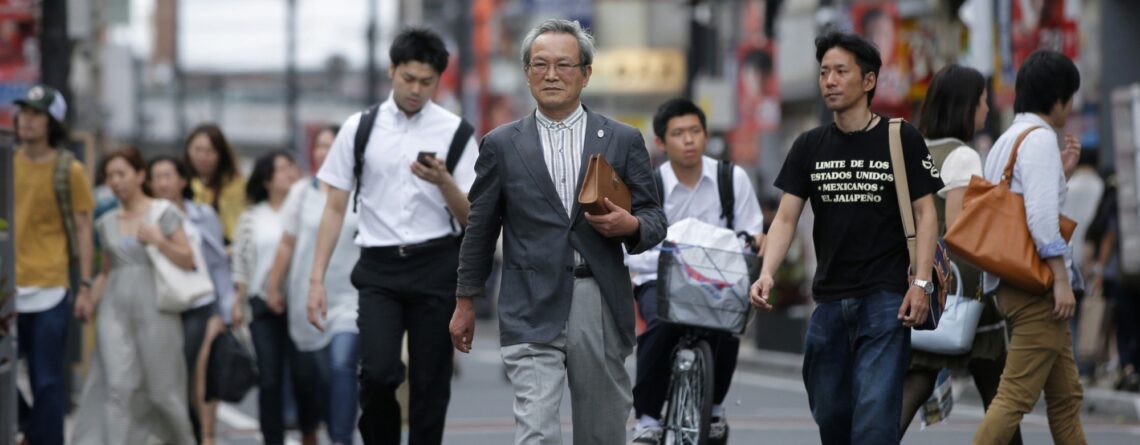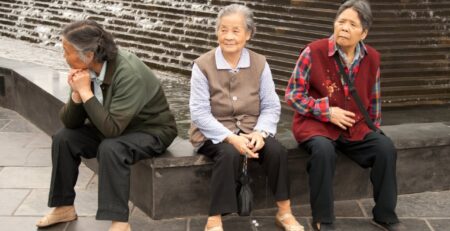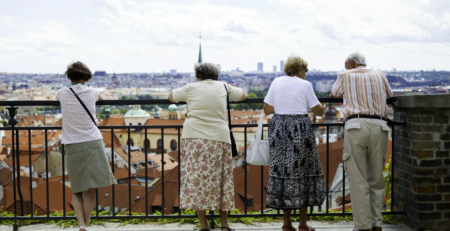Japan retirement trends: job-seeking seniors double in 10 years
The number of people 65 and older looking for work in Japan has more than doubled over the past decade, government employment center data shows, creating the challenge of matching them with the right jobs in a shrinking labor pool.
A Hello Work employment center in Tokyo’s Ikebukuro district has a counter just for senior citizens. Some need work to supplement their income, but others just want to stay active.
“I want to work until I’m 70,” said a 66-year-old man who was there to fill out paperwork last month.
He had retired from a long-term position in November after working beyond the company’s retirement age and was now looking for another job. “I’ll be out of shape if I stay at home all the time, and the idea of stopping work completely makes me uneasy.”
More than 100 job seekers visit the counter daily seeking advice. “We get many people in their 70s and 80s,” an employment center representative said.
That was not always the case. From 2001 to 2018, people between the ages of 25 and 29 were the largest group of job seekers at Hello Work. Many were looking for full-time positions instead of part-time work.
Now more job seekers are past the traditional retirement age. Comparing the average number of active job seekers in January-November 2023 with 10 years earlier, people ages 25 to 29 decreased by 100,000 to 196,000, while those 65 and older increased by 140,000 to 256,000.
The proportion of job seekers 65 and older was 13%, up sharply from 5% 10 years ago. If those ages 55 and over are included, the group accounts for a third of all job seekers.
In addition to demographic changes due to Japan’s aging population, the country’s labor laws are also having an effect.
Companies are required to employ workers up to the age of 65, but for people 65 to 70, companies are merely encouraged to offer employment.
Some older people who want to stay in the workforce have to search for jobs in a different industry.
The percentage of people looking for work who successfully find a job tends to be lower for older Japanese. In the latest data from November, the overall rate was 27% while the rate for those 65 and older was 21%.
“Clerical jobs are popular among seniors, but job openings tend to be for work like apartment building superintendents and cleaning crews,” said a representative from Hello Work Ikebukuro.
The agency holds seminars for seniors about three times a month, encouraging them to look at a wide range of occupations.
Some companies in industries suffering from chronic labor shortages are working to hire more senior citizens.
Staffing agency Staff Service Holdings divides nursing care work into 48 tasks, such as helping people out of bed, feeding, bathing and cleaning. It aims to expand opportunities for people with no experience in the nursing field.
The number of senior citizens working in nursing care through the company’s services has tripled in four years.
In 2022, 52% of Japan’s population ages 65 to 69 participated in the labor market, according to data from the Organisation for Economic Co-operation and Development, the highest of the 37 countries with data available. The rate in the U.S. was 33%, the U.K. 26% and Germany 20%.
Among people 70 to 74, the rate in Japan was 34%, second only to South Korea at 41%.
Pensions alone may not provide enough income for people who live into advanced old age. Japan’s Financial Services Agency estimated in 2019 that a 20 million yen ($139,000 at current rates) nest egg is necessary for life after retirement, though some say the figure is insufficient.
Read more @asia.nikkei











